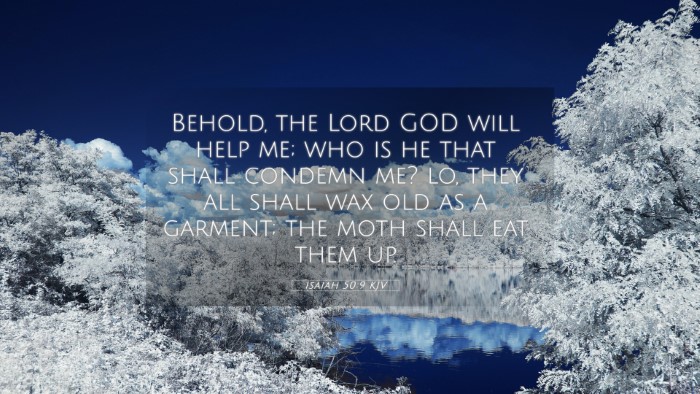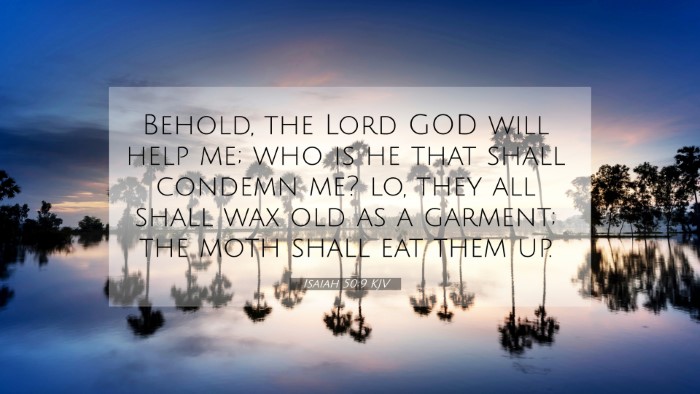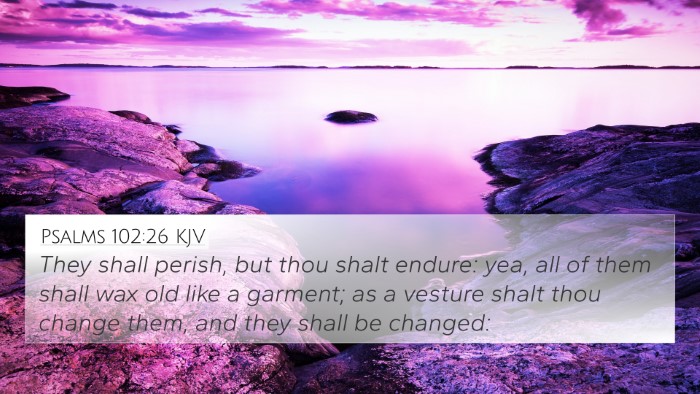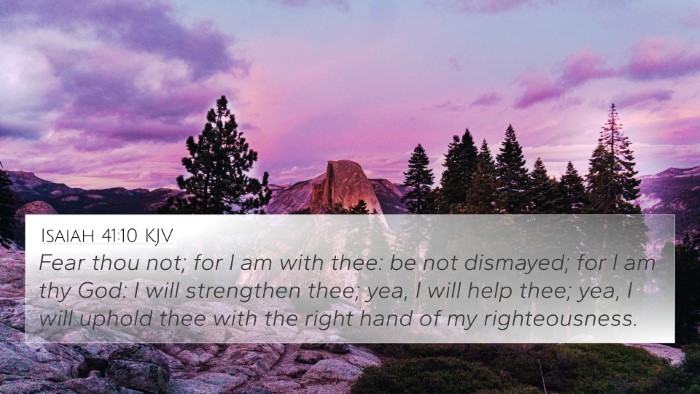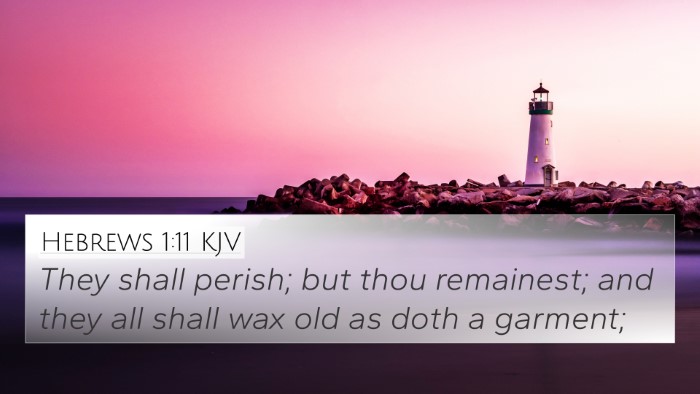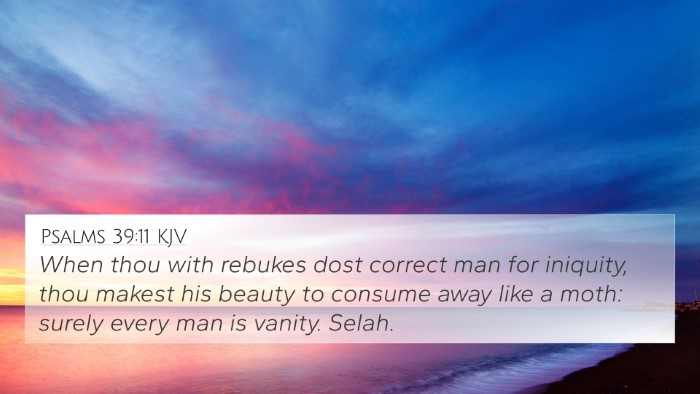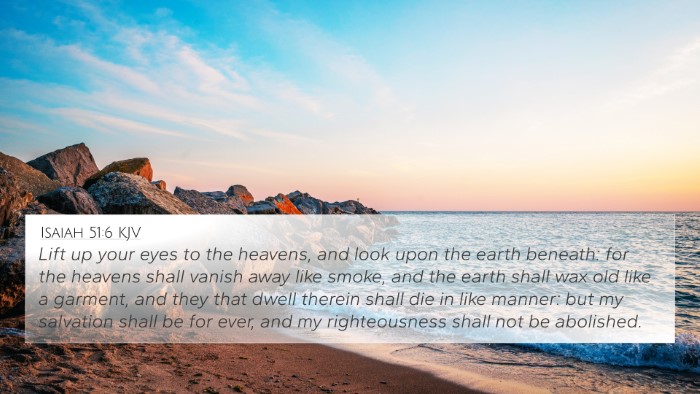Understanding Isaiah 50:9
Isaiah 50:9 states, "Behold, the Lord God will help me; who is he that shall condemn me? Lo, they all shall wax old as a garment; the moth shall eat them up." This verse speaks to the assurance of God’s help in the face of opposition and condemnation.
Verse Summary and Commentary Insights
This verse provides a profound message of trust and confidence in God's protection and vindication. Through a synthesis of public domain commentaries, we can derive a richer understanding:
- Matthew Henry's Commentary:
Henry emphasizes the unwavering support of God during trials. He notes that the "Lord God" is a reliable source of help, strengthening believers against any adversary. Henry points out that the imagery of clothes aging and being eaten by moths symbolizes the fleeting nature of human oppositions and judgments.
- Albert Barnes' Notes:
Barnes highlights the rhetorical question regarding condemnation, suggesting that no one can successfully oppose a person upheld by divine assistance. He further elaborates on the imagery of aging garments, implying that those who withstand the faithful will ultimately succumb to fate, akin to decay.
- Adam Clarke's Commentary:
Clarke offers insights into the motivational aspect of God’s help. He captures the essence of security in God’s presence, hinting at the greater truth that God will nullify the efforts of adversaries. Clarke also discusses the metaphorical significance of moths, connecting this decay to the transient nature of worldly conflicts.
Thematic Connections
The themes distilled from Isaiah 50:9 connect richly with various biblical teachings about God’s protection, the inevitability of human failure against divine will, and the assurance of salvation. Some notable:
- Divine Assurance: The idea of God's faithful assistance is echoed throughout the Bible. For instance, Hebrews 13:6 states, “So that we may boldly say, The Lord is my helper, and I will not fear what man shall do unto me.”
- Human Limitations: James 4:14 reminds us that life is but a vapor, emphasizing the impermanence of our earthly conflicts when compared to God’s eternal existence.
- Judgment and Vindication: Romans 8:33-34 asks, “Who shall lay any thing to the charge of God’s elect?” affirming that God justifies His people.
- Temporal Opposition: Psalm 102:26 presents a similar theme, describing the transient nature of creation compared to the eternal nature of God.
- Comfort in Trials: 2 Corinthians 1:4 discusses the God of all comfort, emphasizing His role in providing solace during challenging times.
- God as the Stronghold: Psalm 46:1 proclaims, “God is our refuge and strength, a very present help in trouble,” reinforcing the notion of divine aid against adversaries.
- The Victory of Faith: 1 John 5:4 states, “And this is the victory that overcomes the world, even our faith,” reminding believers of the triumph found through their faith in God.
Cross-References for Further Study
Through thematic Bible verse connections and comparative Bible verse analysis, Isaiah 50:9 can be cross-referenced with the following verses for a more comprehensive understanding.
- Isaiah 41:10 - "Fear not; for I am with you: be not dismayed; for I am your God: I will strengthen you; yes, I will help you; yes, I will uphold you with the right hand of my righteousness."
- Psalm 118:6 - "The Lord is on my side; I will not fear: what can man do unto me?"
- Romans 8:31 - "What shall we then say to these things? If God be for us, who can be against us?”
- Isaiah 54:17 - "No weapon that is formed against you shall prosper; and every tongue that shall rise against you in judgment you shall condemn."
- 2 Thessalonians 3:3 - "But the Lord is faithful, who shall establish you, and keep you from evil."
Conclusion
This exploration of Isaiah 50:9 reveals a powerful depiction of God's help against adversaries, reinforcing the believer's faith amid challenges. The connections between Bible verses enhance our understanding and provide a framework for interpreting God’s promises and faithfulness through scriptural cross-referencing methodology. Utilize tools for Bible cross-referencing to further delve into these connections and enhance your study.

